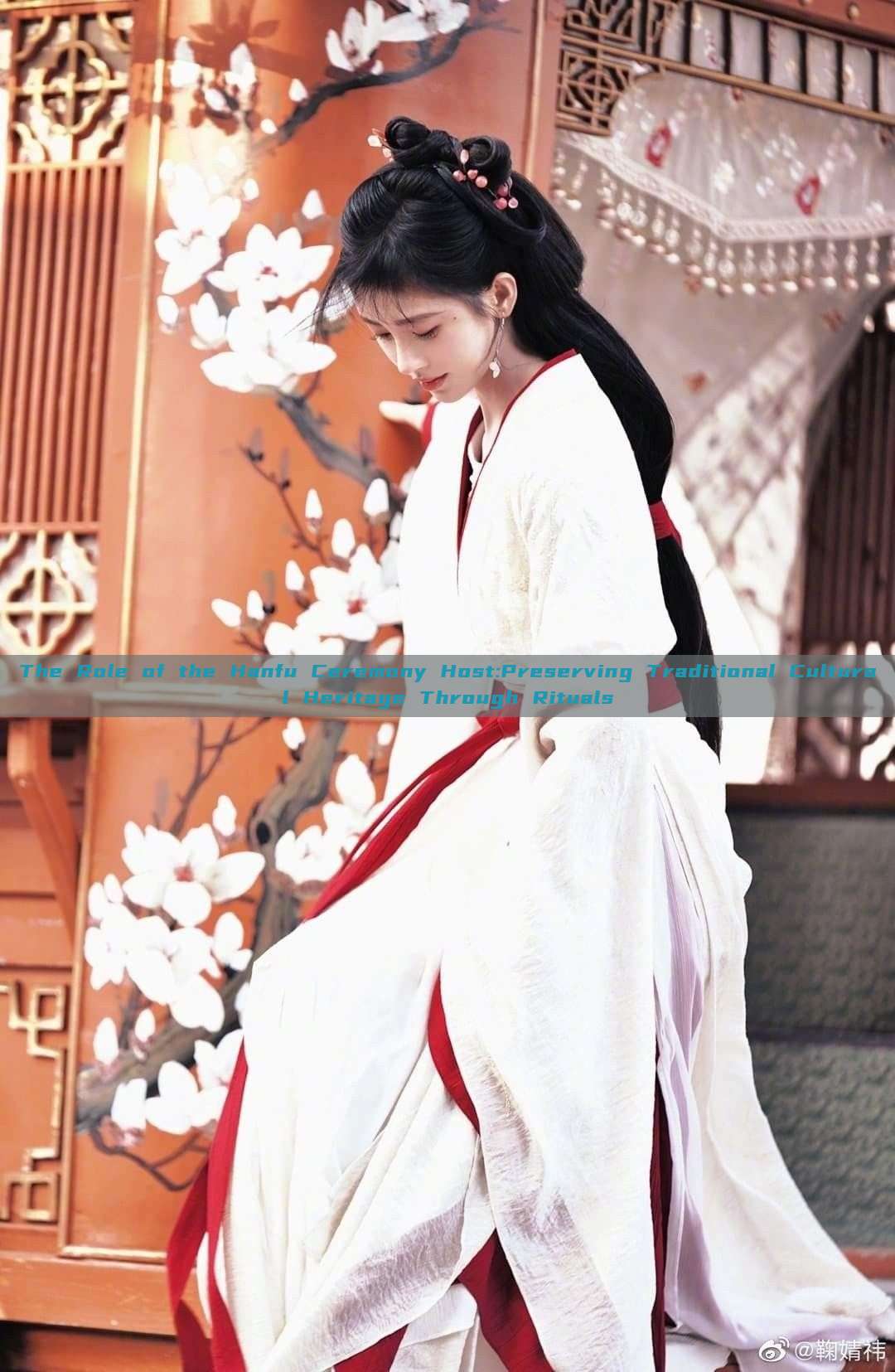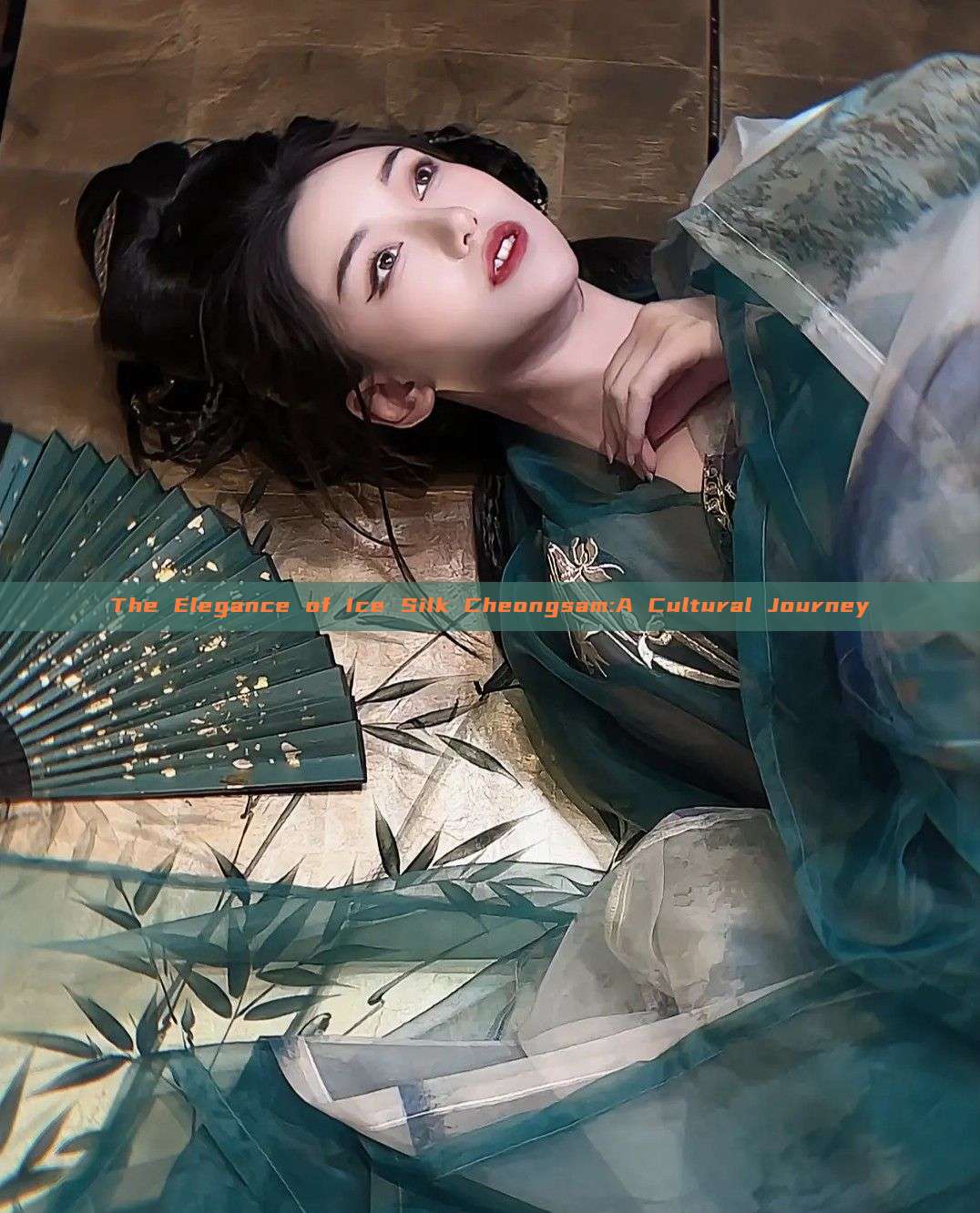In the vibrant realm of Chinese culture, Hanfu, also known as Han clothing, represents a profound historical legacy that dates back thousands of years. This traditional attire is not just about fashion or aesthetics; it is a symbol of a rich Cultural heritage and identity. The role of the Hanfu ceremony host is pivotal in ensuring that these values are transmitted to future generations through the medium of ceremonial events.

The Hanfu ceremony host is akin to a cultural ambassador, embodying the essence of traditional Chinese culture and etiquette. Their responsibilities are vast, encompassing knowledge of Hanfu history, culture, traditions, and the art of hosting ceremonial events. They serve as a bridge between the past and present, ensuring that the essence of Hanfu culture is not lost in translation.
Firstly, the host must possess a deep understanding of Hanfu history and its evolution. This knowledge enables them to present the attire and its associated rituals with authenticity and respect. They must also be well-versed in traditional Chinese etiquette, which is an integral part of any Hanfu ceremony. This knowledge helps them to conduct the event in a dignified and respectful manner, ensuring that all participants are comfortable and engaged.
Moreover, the host must present a professional demeanor that exudes confidence and warmth. They must be able to engage with participants and convey the significance of Hanfu culture in a way that is accessible and appealing to all. This requires a unique blend of patience, enthusiasm, and cultural sensitivity, as the host serves as a guide and mentor to those interested in learning about Hanfu culture.
The role also involves coordinating with various stakeholders to ensure that the ceremony runs smoothly. This includes working with event planners, vendors, and participants to ensure that all aspects of the ceremony align with the goals and values of Hanfu culture. The host must also be flexible and adaptable to different situations, as each ceremony may have its own unique set of challenges and requirements.
Furthermore, the host plays a crucial role in promoting Hanfu culture through various platforms. They may be invited to speak at cultural events, write articles or blogs, or create content on social media to spread the word about Hanfu culture. This promotion is essential in ensuring that this rich cultural heritage remains alive and thriving in modern times.
In addition to their public roles, the hosts also serve as ambassadors of Hanfu culture within their communities. They are often involved in local cultural activities and events where they can share their knowledge and passion for Hanfu culture. They also serve as mentors and teachers to those who are interested in learning more about Hanfu and its associated rituals.
The role of the Hanfu ceremony host is not just about conducting ceremonies; it is about preserving and promoting a rich cultural heritage. They are the guardians of this legacy, ensuring that future generations can appreciate and understand the significance of Hanfu culture. Through their efforts, they help to foster a sense of cultural identity and pride among people who are interested in traditional Chinese culture.
In conclusion, the role of the Hanfu ceremony host is pivotal in preserving and promoting traditional Chinese culture through rituals. Their knowledge, passion, and dedication ensure that this rich cultural heritage is transmitted to future generations in an authentic and respectful manner. Through their efforts, we can continue to celebrate the beauty and richness of Hanfu culture for generations to come.







